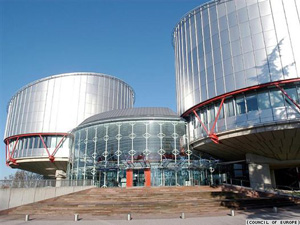Lela Kunchulia, Radio “Liberty”
 According to the draft-amendments to the general administrative code, the state will have right to keep the information about the cases discussed at international courts and courts of foreign states in secret. The prohibition will work for the European Court of Human Rights and Hague Tribunal. Political party of Irakli Alasania “Our Georgia – Free Democrats” speaks about violation of the European Convection on Human Rights. What are the arguments of the project authors?
According to the draft-amendments to the general administrative code, the state will have right to keep the information about the cases discussed at international courts and courts of foreign states in secret. The prohibition will work for the European Court of Human Rights and Hague Tribunal. Political party of Irakli Alasania “Our Georgia – Free Democrats” speaks about violation of the European Convection on Human Rights. What are the arguments of the project authors?
Members of the “Free Democrats” see the incompliance between “total prohibitions” with international obligations of Georgia behind the amendments that might be introduced to the Chapter 3 Article 5 of the General Administrative Code of Georgia. The board member of the political party Tea Tsulukiani discusses the essence of the prohibition based on the example of Strasbourg Court. “The topics of arguments, the questions of the Strasbourg Court to the government, the replies to these questions, dates of the trials, the motives for postponing the trials based on the initiative of the authority and other statistic information – will become unavailable for the society.”
Tea Tsulukiani is an assistant to Irakli Alasania in human rights issues. She worked at Strasbourg Court for 10 years and it is clear for her that the initiated legislative prohibition categorically contradicts the Article 10 of the European Convention of Human Rights. It is the article which protects the freedom of the interested part of society on the access to public information. The restrictions will deal with particular cases which are connected with national and public security, territorial integrity, crime prevention, health and moral defense or prevention to spread secret information. Based on these principles and according to the General Administrative Code, State of Georgia has right to keep state, personal and commercial information in secret. Then, what is the aim of additional restrictions? Tea Tsulukiani mentions two presumable reasons.
“One – state wants to gain complete monopoly and not to bother itself by discussing information publicly… and second – to discharge the corresponding divisions of the executive bodies from extra useless (for them) labor and allow them to work in comfort. But this comfort will cost too much for our country…”
A co-author of the draft-law, deputy chairman of the legal parliamentary committee Lasha Todia has completely different arguments. He is sure that the amendments do not contradict international obligations of the state, and the parties will not have problem in the access to public information; however, public discussion of its position is not in the interests of the state.
But – why should the state hide its position?
“Because the position shall not be known in advance…. the subject of defense shall not be publicly discussed … it shall not be reported because it happens during the court procedures… after the decision is made, everybody will be able to speak about the issues …” said Lasha Todia however he did not clarify what kind of negative experience caused necessity to introduce similar restrictions.
His arguments are not clear for the Free Democrats. The problem for them is the fact that if the restriction is put in force, non-governmental organizations, journalists and independent researches will not get necessary information and will not be able to make it the topic of public discussion.
Alasania’s party intends to submit grounded notes to the legal committee with the support of their representative in the parliament Gia Tsagareishvili. They intend to prevent the introduction of the amendments and avoid further failure of the Georgian state in the Strasbourg Court because Tea Tsulukiani said in future the suits on these restrictions will have huge perspective to win trials at Strasbourg Court. It might become serious damage for the reputation of the state as well as for the state budget because corresponding compensations might be imposed on the state.
News
December 13, 2023
Ethnic minorities outside the peace dialogue
November 6, 2023
‘Peace’ agenda of political parties
Popular
Articles
February 13, 2024



